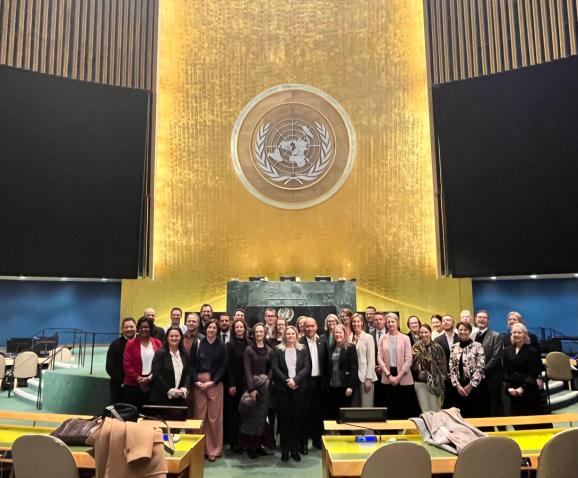In UN peacekeeping, timelines matter.
The ability to deploy military or police units quickly, whether to reinforce an existing mission or support a new one, helps operations adapt to changing needs on the ground.
The Peacekeeping Capability Readiness System (PCRS) maintains a set of military capabilities pledged by Member States that are verified by the Secretariat and stand at various levels of readiness.
At the highest level is the rapid deployment level (RDL), in which, select Member States commit to deploying their units within 60 days of a UN request.
Turning that commitment into an actual deployment, however, is a complex undertaking.
It involves moving a formed unit across continents, requires close coordination among national authorities, UN Headquarters, and field missions, as well as high levels of logistical preparedness.
Since the Peacekeeping Capability Readiness System was established, eleven units deployed from the RDL, each offering valuable lessons about readiness.
To strengthen this system, representatives from eight troop- and police-contributing countries, five peacekeeping missions, and experts from the Department of Peace Operations (DPO) and the Department of Operational Support (DOS) met for a weeklong rapid deployment workshop in November.
The aim is to build a common, practical understanding of how units are pledged, elevated, selected, generated, prepared, and deployed through the rapid deployment level.
Participants spent the first part of the week reviewing doctrine and processes before engaging in a hands-on simulation of an RDL deployment from start to finish.
They also worked through a case study on the recent deployment of a Level II Hospital from Pakistan to the United Nations Multidimensional Integrated Stabilization Mission in the Central African Republic (MINUSCA).
The workshop was coordinated by the Strategic Force Generation Cell in DPO, funded by Germany and Norway, and hosted with support from the Government of the Kingdom of the Netherlands.
Exercises such as this, strengthen cooperation with Member States and help ensure that when missions require a rapidly deployable capability, the UN is ready to deliver efficiently, predictably, and with impact.
“I gained knowledge and information through classes and interaction from the experts from UNHQ, Member States and other missions,” said Lt Col Rabi K C of the Nepali Army.
“I would recommend more workshops and programmes of this nature in the future.”



